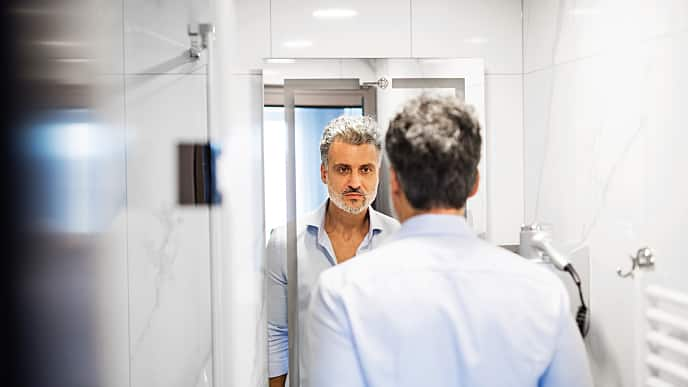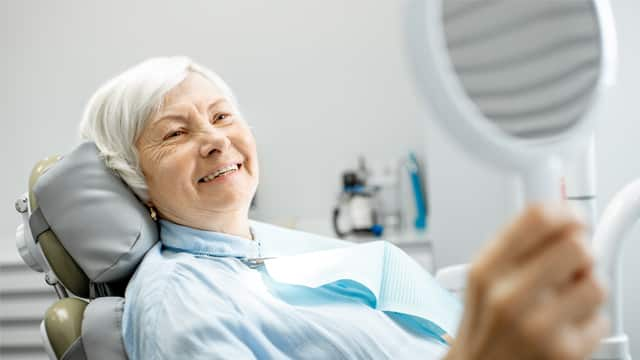Why Denture Care Is Important
Dentures are made to fit comfortably in your mouth, and they should last for many years provided that they're treated with care. These dental devices include full dentures, which replace entire rows of teeth, and partial dentures, which replace several teeth. When you receive your dentures from your dentist, you should also receive detailed instructions on how to wear them, clean them and store them overnight. According to the American Dental Association (ADA), effective denture storage prevents your dentures from drying out, losing their shape and becoming stiff and uncomfortable to wear. What's more, dentures must be cleaned and stored hygienically, or they can become a breeding ground for mouth bacteria and develop plaque and tartar in the same way as natural teeth.
How to Store Dentures
Unless your dentist or prosthodontist provides alternative instructions, the ADA advises that the best method for denture storage is to place your dentures in clean water or a denture cleaning solution. Denture solutions may offer the advantages of reducing the amount of bacteria and fungi that live on the dentures and preventing unpleasant odors. However, you should always follow the instructions on the label when using denture cleanser solutions, and if the solution is created by dissolving tablets in warm water, make sure the water isn't too hot — which may cause your dentures to warp.
Before putting your dentures back in your mouth, make sure to rinse them well, as the Mayo Clinic advises. This step is especially important if the dentures have been soaking in denture cleaning solution. The chemicals in this type of solution can cause burns, pain and vomiting if swallowed.
Dos and Don'ts of Denture Storage
Storing your dentures correctly prolongs their life and helps to keep them clean, pliable and comfortable to wear. Remember these tips from the ADA and the Mayo Clinic for properly caring for and storing your dentures:
Do:
- Keep your dentures moist, or they may lose their shape.
- Follow the instructions on the label if you use denture cleanser solution.
- Rinse your dentures well under clean water before putting them back in your mouth.
- Place the container that holds your dentures somewhere safe where it won't be knocked over. This will help you avoid dropping your dentures onto a hard surface where they can break.
- Go back to your dentist if your dentures no longer seem to fit comfortably in your mouth.
- Follow the instructions on denture storage given to you by your dental professional.
Don't:
- Leave your dentures in overnight. Instead, remove them and brush them nightly to remove plaque and debris, and place them in clean water or a denture cleanser solution.
- Place your dentures in boiling or hot water. This can cause them to warp.
- Use abrasive toothpastes or hard brushes on your dentures. Instead, make sure you use a denture-friendly brush along with a gentle toothpaste.
- Use any whitening products or bleach solutions on your dentures, as these can cause damage.
It only takes a few minutes to clean and store your dentures every night to make sure you'll have clean, fresh, comfortable dentures to wear the next day. Additionally, storing your dentures correctly means that you're prolonging their life. Follow your dentist's instructions on denture storage, and if you're unsure about anything, ask for advice.
This article is intended to promote understanding of and knowledge about general oral health topics. It is not intended to be a substitute for professional advice, diagnosis or treatment. Always seek the advice of your dentist or other qualified healthcare provider with any questions you may have regarding a medical condition or treatment.
ORAL HEALTH QUIZ
What's behind your smile?
Take our Oral Health assessment to get the most from your oral care routine
ORAL HEALTH QUIZ
What's behind your smile?
Take our Oral Health assessment to get the most from your oral care routine















